For the past week, Haiti has been in a political crisis accompanied by violent protests that have claimed at least nine lives; prompted a mass jailbreak; and left residents short of food, fuel, and drinking water.
The protesters are denouncing rampant political corruption in the wake of a report that revealed the Haitian government had misused or diverted billions of dollars of social development money from PetroCaribe, an oil payment agreement with Venezuela. Critics are calling on President Jovenel Moise to resign, claiming he represents the profiteering and mismanagement that occur in the highest ranks of government while constituents sink deeper into poverty and deal with skyrocketing inflation.
Moise made a public appearance on Thursday to express his refusal to resign. “I will not leave the country in the hands of armed gangs and drug traffickers,” he said in his speech.
Demonstrators appeared unaffected by Moise’s speech, resuming protests that have been characterized by tire burning, road blockages, and violent crime. Haitian police are reportedly using tear gas against protesters. The United States issued a travel advisory Thursday and ordered the removal of all non-emergency U.S. personnel and their families, warning Americans of “widespread, violent, and unpredictable demonstrations in Port-au-Prince and elsewhere in Haiti.”

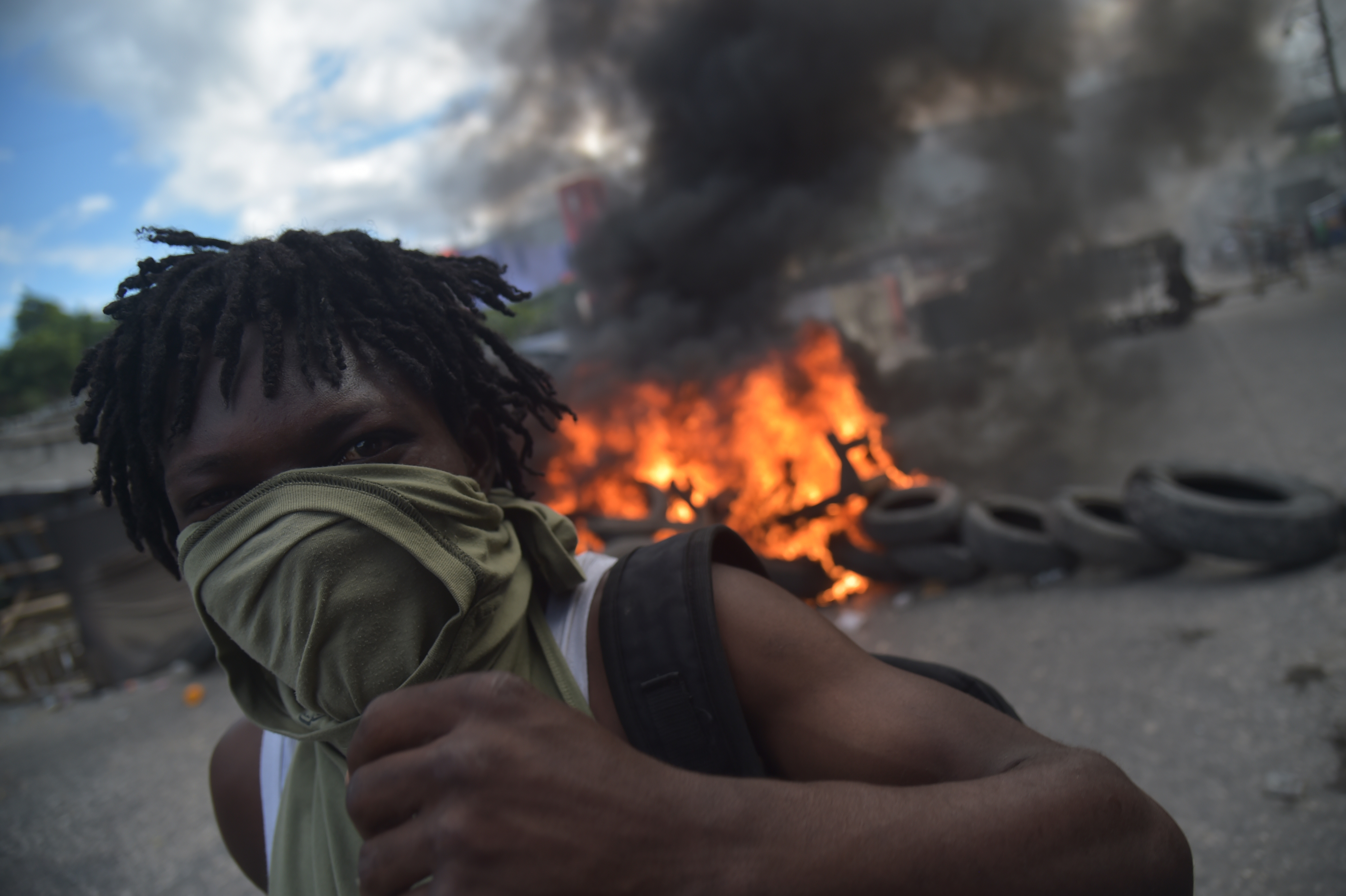
(Photo: Hector Retamal/AFP/Getty Images)
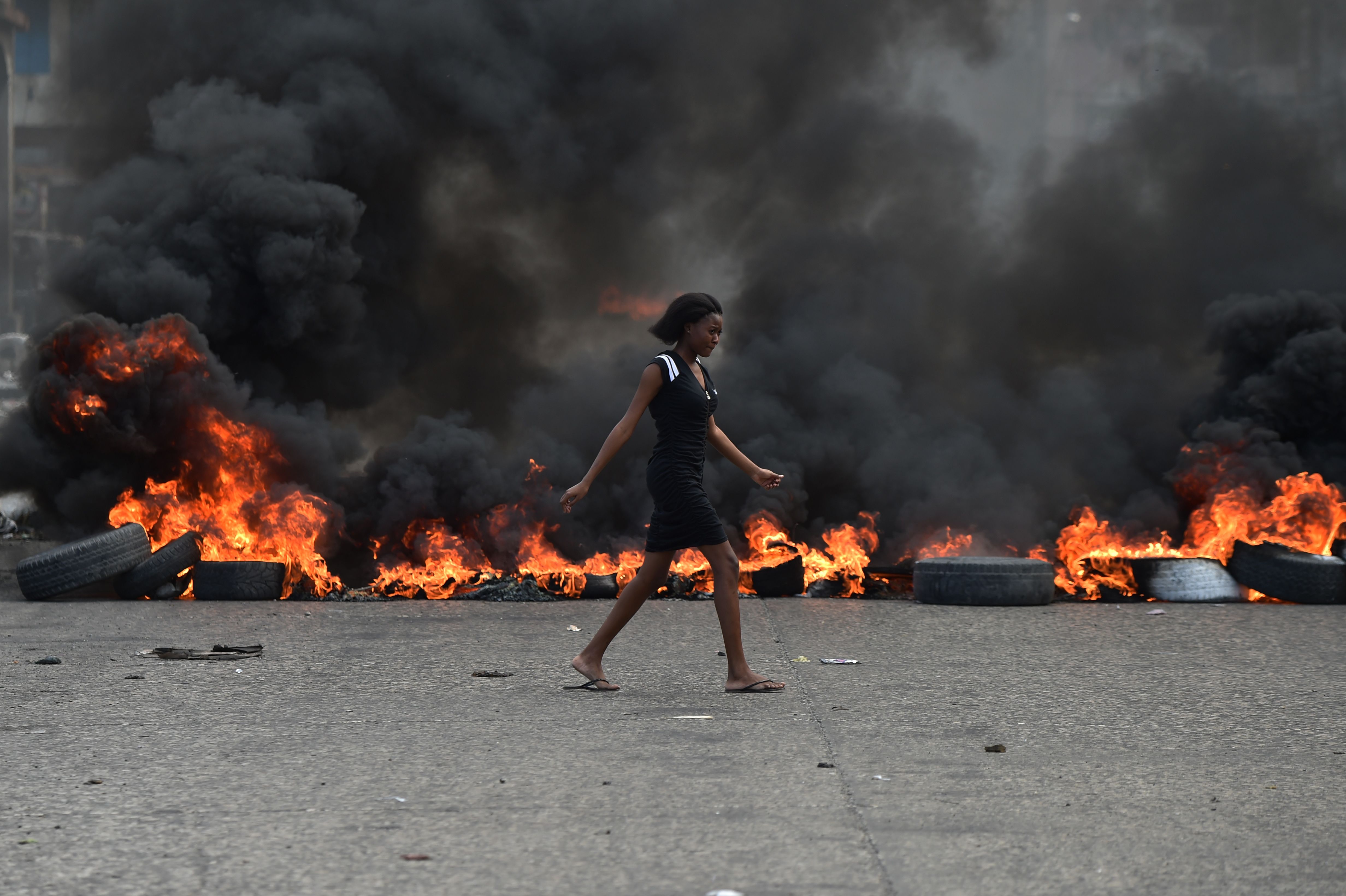
(Photo: Hector Retamal/AFP/Getty Images)
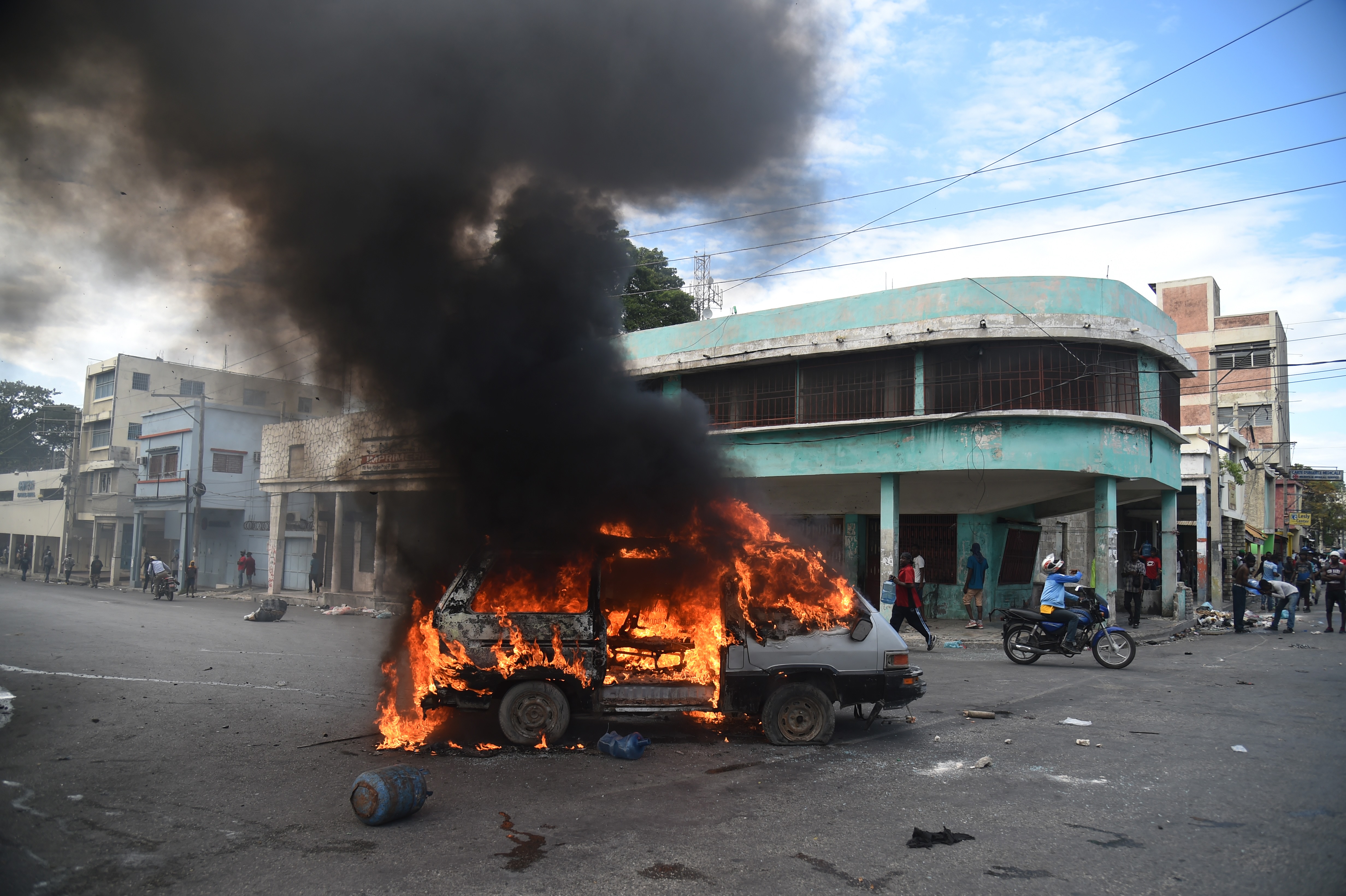
(Photo: Hector Retamal/AFP/Getty Images)
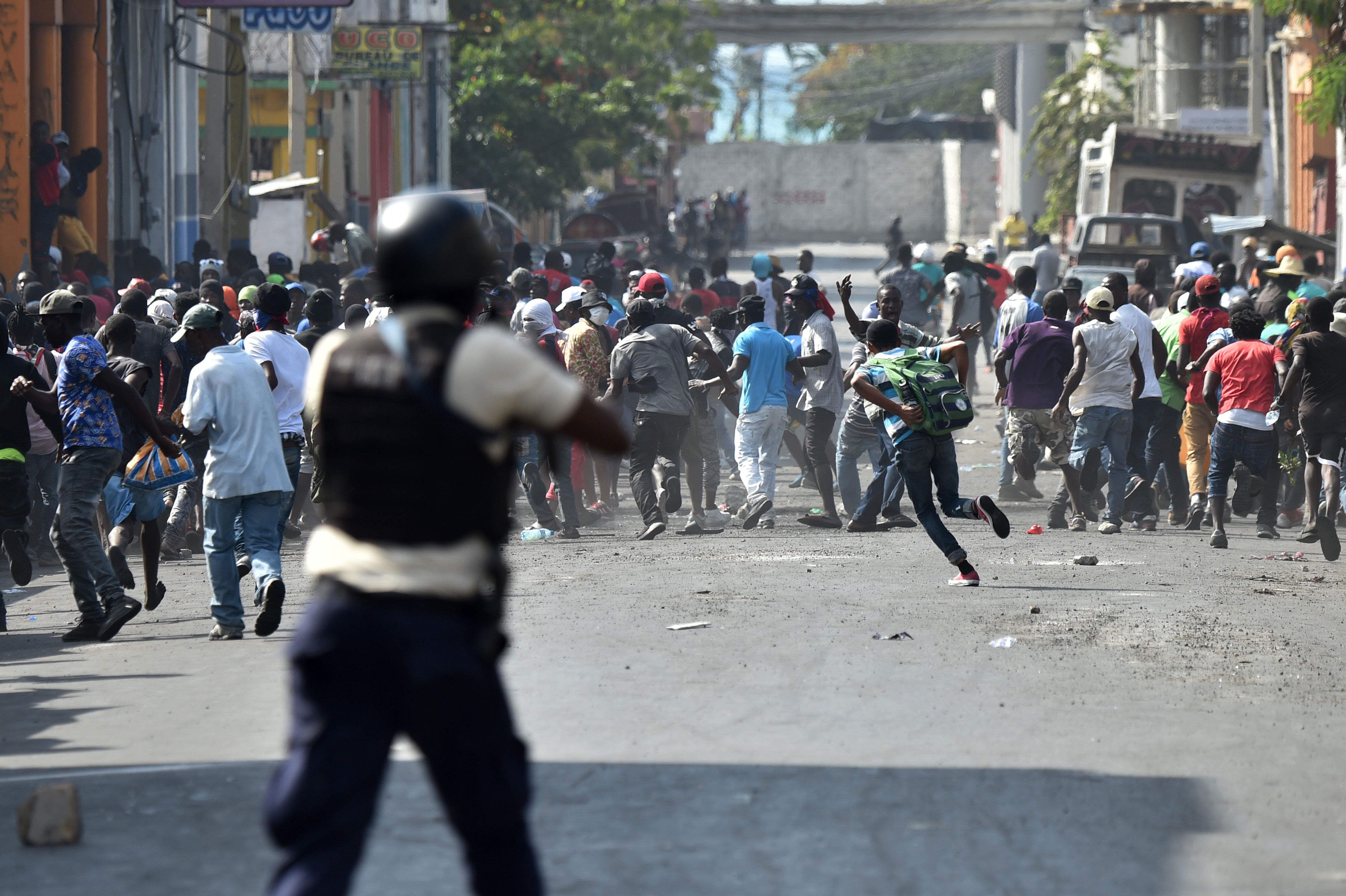
(Photo: Hector Retamal/AFP/Getty Images)
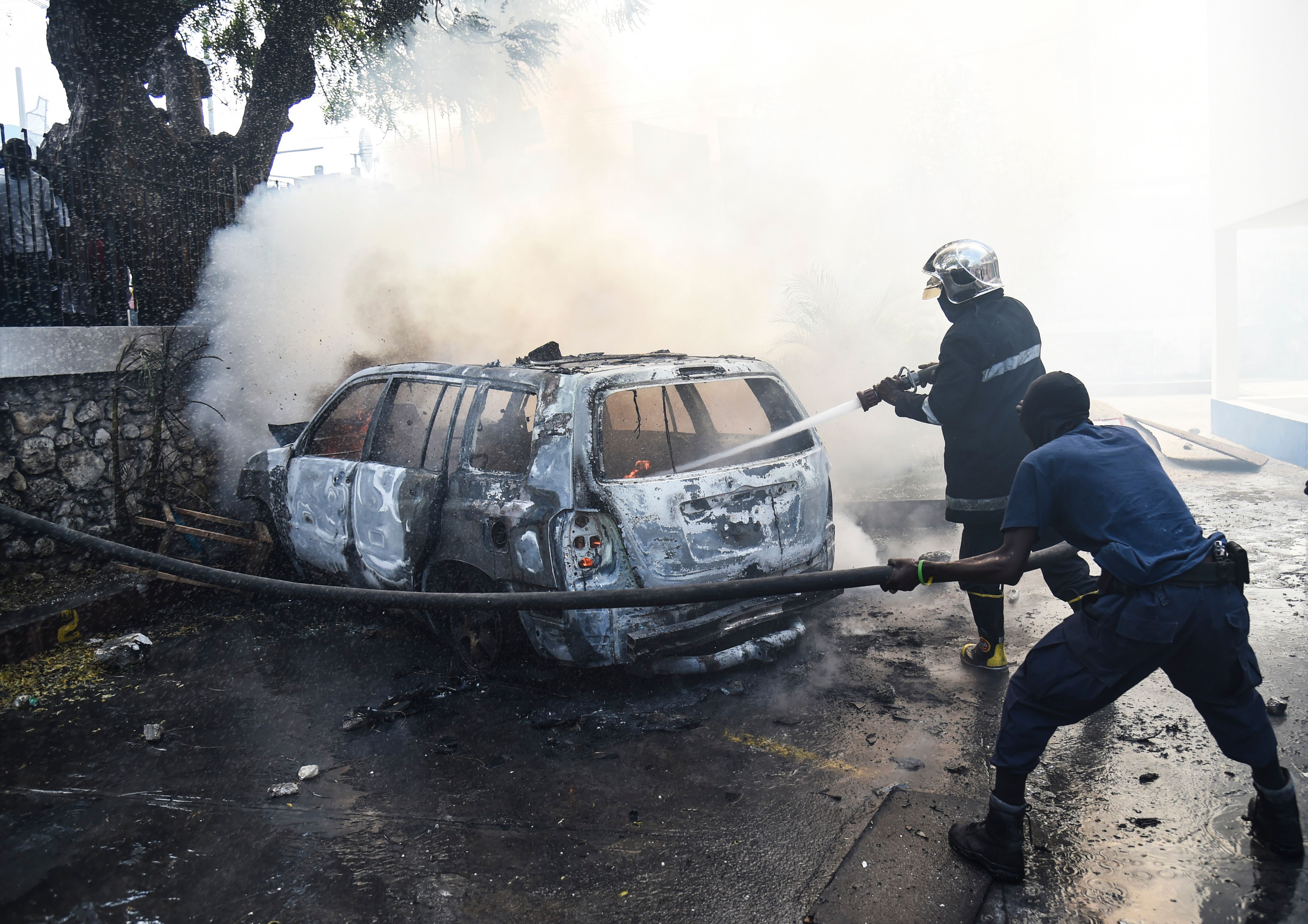
(Photo: Hector Retamal/AFP/Getty Images)
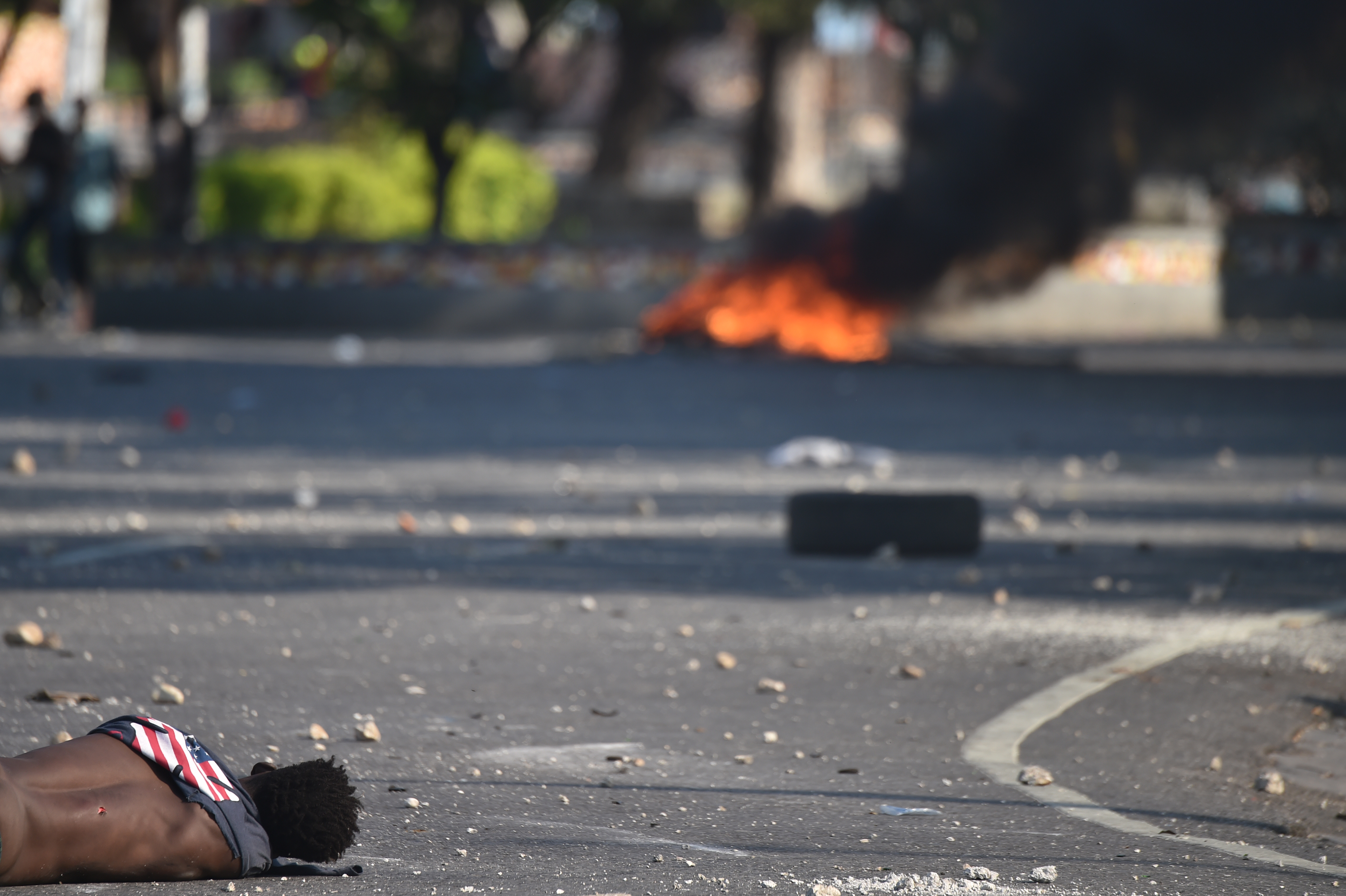
(Photo: Hector Retamal/AFP/Getty Images)
More From Pacific Standard on Haiti
- Beside a Vast Graveyard, a New City Rises in Haiti
- The Red Cross May Not Know How Millions Donated for Haiti Were Spent
- If Current Deforestation Rates Continue, Haiti May Lose Its Forests Within Two Decades
- Review: Seeing Haiti’s Distress as People, Not Statistics
- Hurricane Matthew Has Spawned Thousands of New Haitian Refugees





